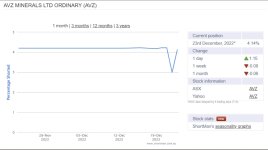Bin59
Regular
DRC: Three pro-Katumbi ministers throw in the towel, inevitable reshuffle
What was to happen finally happened. Three pro-Katumbi ministers have just taken their freedom. Christian Mwando, Minister of State in charge of the Plan, Cherubin Okende, Minister of Transport, Communication Routes and Unveiling and Véronique Kulumba, Deputy Minister of Health, Hygiene and Prevention have chosen to remain faithful and loyal to their mentor, Moïse Katumbi, president of Ensemble pour la République; who, a few days ago, slammed the door The former governor of the ex-Katanga immediately declared himself a candidate for the 2023 presidential election; which was endorsed by the 1st party congress held in Lubumbashi last week.It was Félix Tshisekedi who personally announced to the members of the government the departure of 3 pro-Katumbi ministers. This, thanks to the last meeting of the Council of Ministers, the 81st of its kind, held face-to-face, this Wednesday, December 28, 2022, at the Cité de l'Union Africaine.
Long before the Council of Ministers, the Head of State had received as an aside 5 members of the government from the Ensemble for the Republic of Moïse Katumbien presence of the Prime Minister.
It was a question for Félix Tshisekedi to know their commitment to his political line and vision after the positions of their political grouping.
As the co-founders of the Ensemble, the Minister of State for Plan Christian Mwando, Transport and Communication Routes Chérubin Okende and Deputy Minister of Health Véronique Kilumba, announced their intention to resign to remain consistent with their political background.
"At the end of this audience marked by respect and consideration, the 3 resignations left the City of the AU freely," said one source.
As for the other 3 former members of Ensemble, namely: the Deputy Prime Minister of Foreign Affairs, Christophe Lutundula, Ministers Modeste Mutinga and Muhindo Nzangi (absent from the country), they reiterated their "total support" for the Head of State and their membership of the Sacred Union.
After this voluntary departure of the Katumbist ministers, added to this the absence of the Minister of the Economy removed from office by a motion of mistrust by the national representation, the reshuffle of the Sama Lukonde team becomes inevitable. It is therefore the sway in the government and in the staffs of the member parties of the Sacred Union.


